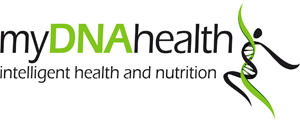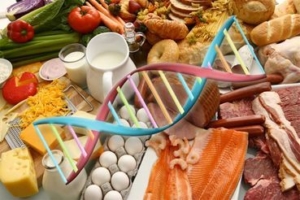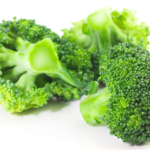A review: Blood type dietary approaches
The myDNAhealth approach is a genetic test of actionable genes and consultation questionnaires in order to assess a person’s lifestyle and hence, any potential for epigenetic changes. We use current scientific evidence to provide actionable advice to help people improve their lifestyle and hence, their wellbeing.
What else is currently been marketed as a genetic diet? Our PHD intern, Anna Ten Bioscience (Quadram Institute), MPhil in Medical Sciences, BSc (Hons) Medical Biochemistry, investigates the GenoType Diet.
The GenoType diet™ book
The trade marked GenoType™ diet, created by Dr D’Adamo, promises to “help you live the longest, fullest and healthiest life possible” “without the need for expensive tests, or even a visit to the doctor” (ref book). In the entertaining book, the author explains that there exist six GenoTypes (Genetic Archetypes, based on your genes, determined by your blood type, and your environment before birth – in the womb; not to be confused with the scientific term genotype – your actual genes) the Hunter, the Gatherer, the Teacher, the Explorer, the Warrior and the Nomad.
The book takes you through a fun set of activities, which, with the aid of tests that you can buy ranging from a blood type home test, SNP test for what looks like one gene, and a taste test) to determine your GenoType and provide you a list of super foods and toxic foods to obtain the ultimate, personalised lifestyle experience.
Determining the GenoType™ according to the book
The book argues that Dr D’Adamo’s GenoType calculator is more accurate at predicting risk factors for genetic diseases than “expensive and time consuming” laboratory testing but how easy and reliable is it to determine your GenoType? Is it as easy as “no effort or expense”?
Being a semi-regular blood donor, Anna knows her blood type is B+. Without buying the $9.95 home blood test, she can eliminate several GenoTypes.
- The Hunter GenoType is always blood type O.
- The Teacher and the Warrior are blood type A or AB.
- The typical B blood genotypes are the Gatherer and the Nomad.
- The Explorer can be any blood type therefore Anna knows she is either a Gatherer, a Nomad or an Explorer.
Anna reports that being Rhesus positive, she almost instantly knows she is a Nomad, as this GenoType is almost always Rhesus positive. But can she truly be sure of her GenoType? She finds a tape measure and follows the protocol of the GenoType calculator which includes measuring her standing height, sitting height, upper leg length, lower leg length, index and ring fingers. She also thoroughly examines the patterns of her finger prints. She deduces that she is very symmetrical. According to the book, this means that she had a very happy gestation period and should have a great epigenetic profile. This symmetry excludes the Explorer GenoType, as Explorers are asymmetrical.
How can she tell if she is a Gatherer or a Nomad? She could take the $119.95 secretor genetic test. The test measures whether you secrete your blood type antigens into your bodily fluids. 85% of the world are secretors, 15% are not, according to the GenoType diet and the unlucky 15% have a lower fat burning rate and higher risk of inflammation (ref book). Conveniently, Anna has the exact item that she needs to differentiate whether she is a Gatherer or Nomad, as the book promised, in her home! She finds a very common item, which most people definitely have in their household, which solves her genetic mystery. What is this common item you need to decipher your genotype? A dental mould of her upper jaw of course! She analyses the cast of her upper teeth, focusing on the front incisors and fifth molars, and deduces that she is a Nomad.
What does the GenoType™ mean?
Anna learns that as a Nomad she should be sensitive to the elements but will age well, which is nice for anyone to hear (read). She learns that she has the enviable gift of controlling her macrophages – the cells responsible for inflammation – with her mind. However, if she does not regularly visualise her macrophages regulating her Nitric Oxide levels she can be prone to neuromuscular diseases and chronic fatigue.
According to the book, her optimal GenoType diet is a “herder diet” and for optimal health she must eliminate chicken and bear meat from her diet. She does not regularly consume bear meat so eliminating this toxic food will be an issue, but she is disappointed that following this diet plan will mean no more Nandos.
Anna further learns that for Nomads some cheeses are super foods while others are toxins to avoid, she wonders how the author of this diet plan made the distinction between these dairy products. She also finds out that she has been poisoning herself with toxic bananas and oranges all these years. She is disappointed that her super drink is beer as she has never been a beer drinker. She discovers that all the six genotypes are poisoning themselves with ketchup and mayonnaise.
So What Am I (SWAMI)?
Anna finds that since the GenoType Diet book was published in 2010, So What Am I (SWAMI) packages have evolved. The basic SWAMI package is £350 and the most expensive package is £650. The packages promise to “go one step further into your genes and epigenetics” and all offer “Complete SWAMI testing” although it is unclear what the test is. As she already knows her blood type is B+ and that according to her biometric analysis from the GenoType Diet book she is a Nomad, she wonders how the SWAMI packages can improve health. She fills in the Contact Us form to enquire about the test but never receives a reply.
Conclusion
The Blood type diet theory has been widely criticised by the scientific community (Cusack et al 2013, Wang et al 2014). The GenoType Diet book is quite entertaining to read and provides fun activities for the reader, including measuring your leg length and head circumference.
The reference section of the book refers the reader to various books however it is extremely unclear how the author reached some conclusions in the health risk sections of some GenoTypes. For example, that the Explorer GenoType was at risk of breast cancer “especially if female, type A blood and left handed”! The patient example of the Teacher GenoType was also upsetting to read, as the book’s author claimed to cure a patient of multiple myeloma, an aggressive and incurable blood cancer with GenoType diet and supplementation.
About the reviewer: Anna Ten, Year 2 PhD in Bioscience (Quadram Institute), MPhil in Medical Sciences (University of Cambridge), BSc (Hons) Medical Biochemistry (University of Leicester)
Anna has over five years of laboratory experience, in haematology and hepatology research, and is on a Professional Internship for PhD students with myDNAhealth where she is researching genetics and epigenetics for dental health related conditions. She has completed year 1 of her PhD at the Gut microbes and Health department of the Quadram Institute of Biosciences where she is researching immunometabolic changes in liver disease.
References
Leila Cusack, Emmy De Buck, Veerle Compernolle, Philippe Vandekerckhove; Blood type diets lack supporting evidence: a systematic review, The American Journal of Clinical Nutrition, Volume 98, Issue 1, 1 July 2013, Pages 99–104, https://doi.org/10.3945/ajcn.113.058693
Wang J, García-Bailo B, Nielsen DE, El-Sohemy A (2014) ABO Genotype, ‘Blood-Type’ Diet and Cardiometabolic Risk Factors. PLOS ONE 9(1): e84749. https://doi.org/10.1371/journal.pone.0084749
Disclaimer: The review and comments posted on this page is that of Anna Ten only.



